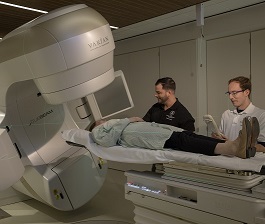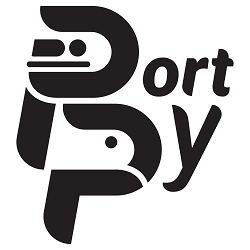Masoud Zarepisheh

Associate Professor
Department of Medical Physics
Memorial Sloan Kettering Cancer Center
321 East 61st Street, New York, NY, 10065
| Email | Google Scholar | LinkedIn | Github |
About
I have finished my Ph.D. in applied mathematics, mainly focusing on the theoretical aspects and algorithm design of Mathematical Optimization techniques. I have later shifted my focus, during my postdocs, on the applications of mathematical modeling and optimization in Medical Physics, and particularly in radiotherapy cancer treatment planning. I am currently a faculty member at MSKCC where I am working closely with clinicians to leverage mathematical optimization techniques in real clinical environments.
What is Radiotherapy Cancer Treatment Planning?

Radiotherapy (aka radiation therapy) is one of the major modalities of cancer treatment that can be prescribed as the main treatment or can be given in combination with surgery and/or chemotherapy. Radiotherapy is the use of radiation beams, precisely directed to diseased cells, to fight cancer. The main objective of radiotherapy is to deliver radiation to the tumor to kill cancerous cells without harming the surrounding healthy tissue. Each cancer patient’s tumor is unique in terms of its shape, location, and the surrounding healthy tissue. The machine settings, including the beam angles and beam shapes, must be customized based on the patient’s image data and the physician’s dose prescription for both the tumor and nearby healthy tissues. This gives rise to large-scale, multi-criteria, and often non-convex optimization problems.
Want to learn more? Visit our open-source project PortPy.
Open-Source Python Package (PortPy)

PortPy is a codebase open-source package providing research-ready data and code to facilitate the development and clinical translation of radiotherapy treatment planning optimization algorithms. PortPy includes benchmark data (pre-calculated data from an FDA-approved commercial treatment planning system Eclipse) and benchmark code (algorithms for optimizing beamlets, beam angles, apertures, and robust optimization).
Clinical Deployment of Automated Planning at MSKCC

In radiotherapy, the machine settings must be customized for each cancer patient and this requires extensive iterative manual tuning of the parameters. This process is: 1) time-consuming, 2) labor-intensive, and 3) the plan quality heavily dependens on the skill and experience of the planner. We have recently developed and clinically deployed an in-house automated treatment planning system called ECHO (Expedited Constrained Hierarchical Optimization). ECHO is seamlessly integrated into an FDA-approved commertial treatment planning system Eclipse and being used in our daily clinical routine with more than 10,000 treated to date (May, 2024). ECHO was nominated as a finalist for the prestigious Franz Edelman 2021 award (YouTube | Slides | Paper | Podcast | News).
The following table summarizes some of the technical chanllenges in this project and the optimization tools we have employed to tackle them.
| Implementation Status | Challenge | Optimization Tools | Publication |
|---|---|---|---|
| Clinically Implemented | Conflicts between tumor irradiation and healthy tissue sparing | Hierarchical Constrained Nonlinear Optimization | Zarepisheh et al. (2019), Zarepisheh et al. (2021) |
| Radiation dose discrepancy between optimized and final plans | Lagrangian Methods | Zarepisheh et al. (2019) | |
| Handling Dose Volume Histogram (DVH) constrains, non-convexity | Mixed Integer Programming, Convex Relaxation | Mukherjee et al. (2020) | |
| Volumetric Modulated Arc Therapy (VMAT), non-convexity | Sequential Convex Programming | Dursun et al. (2021), Dursun et al. (2023) | |
| Research/Development | Beam Angle Selection (Combinatorial Optimization Problem) | Bayesian Optimization | Taasti et al. (2020) |
| Curse of Dimensionality in Treatment Planning Optimization | Compressed Radiation Treatment Planning (CompressRTP) | Adeli et al. (2024) Tefagh et al. (2023) Tefagh et al. (2024) | |
| Setup and Range Uncertainty Errors in Proton | Robust Optimization (P-Norm Function) | Taasti et al. (2020) | |
| Multi-Criteria Challenge | Deep Learning Predictions (Moment-Based Loss Functions) | Jhanwar et al. (2022) | |
| Increasing Computational Complexity With Uncertainty Managements | Distributed Optimization (ADMM) | Fu et al. (2022), Zarepisheh et al. (2018) | |
| Proton Plan Delivery Efficiency | Weighted L-1 regularization | Fu et al. (2024) |